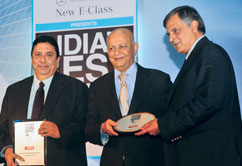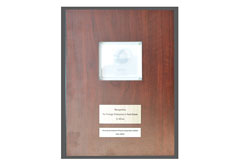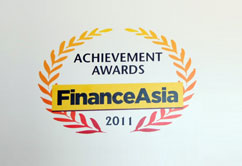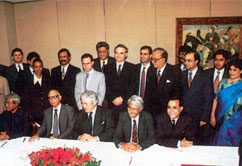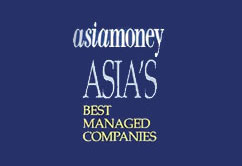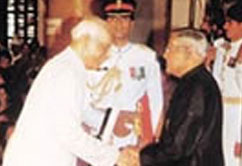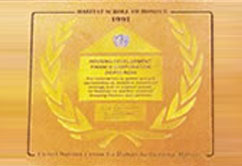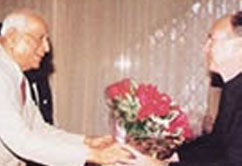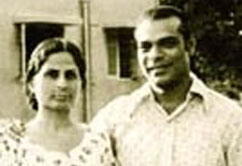Please share your details to get a call from our Loan Expert!
Our Story
About HT Parekh
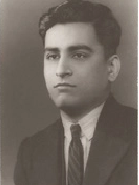
Born on March 10, 1911, in a banking family at Surat, Mr. Hasmukh Thakordas Parekh, fondly referred to as ‘Hasmukhbhai’, was the doyen of the Indian housing and financial sectors
He imbibed the spirit of banking from his father, but what shaped him more was the deep influence of his mother, and the stamp of her self-effacing character. He also grew up in the Gandhian era, and this had a deep impact on his values and philosophy.
A graduate in Economics from Mumbai, Mr. Parekh also pursued a B.Sc. degree in Banking & Finance from the London School of Economics.
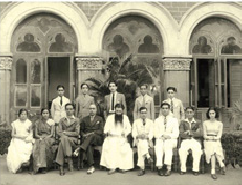
After returning to India in 1936, Mr. Parekh began his financial career with a leading stock broking firm, Harkisandass Lukhmidass. Simultaneously, he was a lecturer in Economics at the St. Xavier’s College in Mumbai for about three years. He considered his two decade-long stint at the broking firm valuable, as it not only gave him his most basic lessons in the business, but also immensely contributed to his personal growth.
During this period Mr. Parekh also continued to study and write on different aspects of the economy and economic policy, money and banking, and also participated in public discussions.
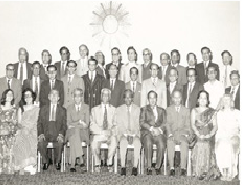
Driven by a deep interest in investment banking, he decided to move on to his next major assignment. In 1956, Mr. Parekh joined the newly set up development finance institution, Industrial Credit & Investment Corporation of India Limited (ICICI) as its Deputy General Manager. ICICI was one of the earliest institutions sponsored by the World Bank in co-operation with the Government of India and the US Government.
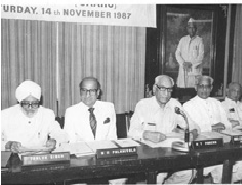
A nationalist to the core, he valued global involvement and co-operation. In fact, he acknowledged his debt to the World Bank, in creating in him an interest in development banking and international co-operation. He advocated the formation of a ‘common market’ between India and its neighbouring countries like Pakistan, Burma (now Myanmar), Ceylon (now Sri Lanka), Malaysia, etc., way back in 1962. This was followed up, over the years, by appeals to political leaders and even more characteristic, by suggestions regarding private action which would pave the way for a change in public policy.
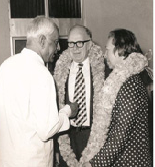
Mr. Parekh rose to become ICICI’s Chairman in 1972. Under his leadership, ICICI grew impressively to gain acceptance of the Indian business community, recognition of Government and even became a showpiece for the World Bank. He was instrumental in helping the first generation of entrepreneurs of India live their dreams and, in turn, was able to bolster India’s economic growth.
By the time he moved on in 1978, ICICI had more than fulfilled its ambitious goal and became a financial landmark of India.
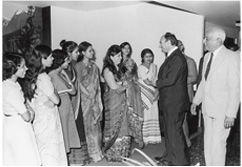
Extraordinary achievements start with unconventional thoughts. He was a man who dared to question, “Why can’t Indians have a home of their own with housing finance in the earlier years of their lives? Why should they have to wait till the end of their working careers?” Though the question was simple, the answer was not so. The uphill task notwithstanding, at an age of 66, when most people think of retirement, Mr. Parekh was determined to set up his most ambitious enterprise.
His lifelong dream of helping Indians own their home, as he had seen abroad during his student days, led to the formation of the Housing Development Finance Corporation Limited (HDFC) in 1977 and as they say, the rest is history.
It was the first of its kind in the country. His setting up of HDFC, without any financial assistance from the Government of India was a milestone in the Indian financial history. It was under Mr. Parekh’s leadership and direction that HDFC grew manifold while being strongly rooted in the principles of integrity, transparency and professionalism.
Mr. Parekh was a man of few words, and believed that strong views need not be expressed in strong words. He had a keen eye for talent and nurtured it by providing direction and ample learning opportunities.
He never underestimated the power of teamwork. He believed that the success of an organization was possible only with a group of dedicated professionals who shared a common goal to serve, and were willing to take reasonable risks.
Soon HDFC became a role model not only for the country but for the entire Asian region. His dream of providing better housing and living conditions for people was accomplished with an organization that was modelled on its international peers but was Indian at heart.
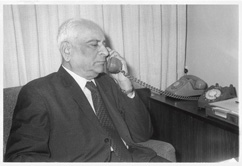
In keeping with Mr. Parekh’s zeal for establishing new ventures, in 1983, he promoted the first private sector oil exploration company in India, Hindustan Oil Exploration Company Limited (HOEC).

He also set up Gujarat Rural Housing Finance Corporation Limited (GRUH) in 1986, an institutional structure for providing rural housing finance in villages and small towns. As Mr. Rohit C. Mehta, former Chairman of GRUH recalled, “It was Mr. H. T. Parekh, who conceived GRUH and took initiative against odds in establishing the company. Mere words cannot describe the rare amalgam of a path-breaking intuition, pioneering vision and, above all, that even rarer quality of always remaining an eminently lovable human being. He was truly ‘a man who saw tomorrow’.”
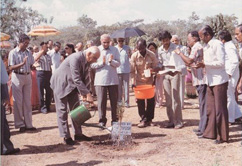
Known for his humility, affection and concern for fellowmen, Mr. Parekh was associated with several philanthropic causes and welfare organizations.
In 1986, he was one of the founders of the Centre for Advancement of Philanthropy and served as its Chairman since its inception until his retirement in 1993. His concern and love for the city of Mumbai (erstwhile Bombay) led him to form the Bombay Community Public Trust in 1991. This venture was designed specifically to address the needs of disadvantaged citizens in the city of Mumbai. He took the initiative to finance Mumbai’s first public toilet by any corporate house ‘Sulabh Shauchalaya’. Additionally, Mr. Parekh served as a trustee of the Sameeksha Trust, Saurashtra Trust, Kasturba Gandhi National Memorial Trust, The India Foundation, The lndia Heritage Trust, and The Chakallas Puraskar Trust.
He also served as the President of the Social Service League. This charitable institution undertakes activities in several areas such as adult education, medical relief, technical education, cultural activity, industrial schools for women, night schools, children’s education classes, mobile libraries and gymnastic institutions among others.
Guided by a strong urge to be of some help to the downtrodden and the underprivileged, and to lighten their burden, he believed in service without publicity, and without a thought of personal gain. He believed that while public participation in cash and kind did play a significant role in the process of social betterment, it was far from adequate, and a lot more had to be done with organized public awareness and creation of suitable agencies.
Mr. H. T. Parekh was also the Chairman of the IMC Economic Research and Training Foundation for nearly 16 years.
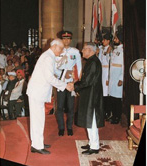
A simple man, Mr. H. T. Parekh avoided the limelight and lived in a typical middle-class home all his life. It is ironic that a man, who created a revolution in housing finance and provided homes to millions, was so selfless, that he himself didn’t own a home of his own during his lifetime.
He believed in the little pleasures of life, in friendship, in reading and writing. His wisdom and warmth drew people from all walks of life to him for advice, guidance and inspiration.
In addition to being a regular contributor to the media with over 200 published articles to his credit on a variety of subjects, he authored ‘The Bombay Money Market’, a novel book detailing the intricate workings of the money market in lndia. He also chronicled his considerable experience as a development banker in his book, ‘The Story of a Development Bank (ICICI: 1955-1979)’.
Some of his other books include ‘The Future of Joint-Stock Enterprise in India’, ‘India and Regional Development’, ‘Management of Industry in India’ and ‘Indian Capital Market - Past, Present & Future’. Also, his writings in Gujarati, ‘Hirane Patro’ and ‘Hirane Vadhu Patro’ are considered works of great importance in Gujarati literature.
The country has showered him with many accolades such as the Padma Bhushan in 1992, but perhaps he gave a lot more to the nation.
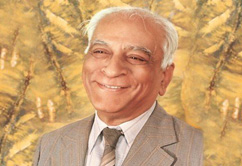
Mr. H.T. Parekh passed away on November 18, 1994, marking the end of an era for HDFC as well as Indian financial world. But the thoughts and dreams of this legend live on forever, changing lives for the better...
HDFC Milestones
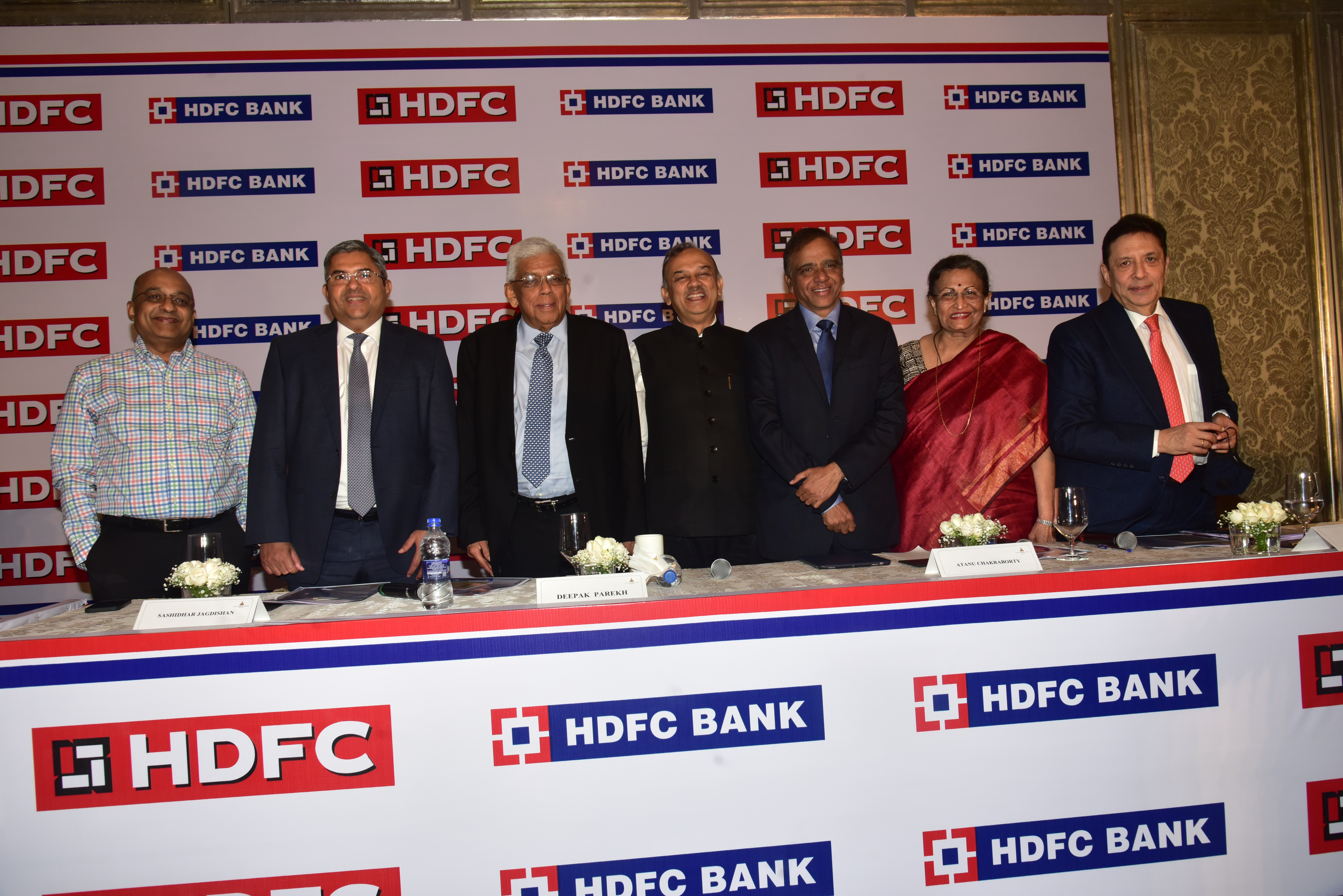
- HDFC Ltd awarded as the Best Performing Housing Finance Company under Pradhan Mantri Awas Yojana (PMAY) by Shri. Hardeep Singh Puri, Honorable Union Minister for Housing & Urban Affairs & Minister for Petroleum and Natural Gas. (Oct 2022)
- HDFC Seals a Landmark USD 1.1 billion Social Loan, largest social loan globally for Affordable Housing. (Aug2022)
- HDFC Ltd launched a revolutionary ‘Spot Offer’ on WhatsApp to get an in-principle home loan approval instantly. (May 2022)
- HDFC Ltd announced sale of 10% equity in HDFC Capital to Abu Dhabi Investment Authority (ADIA) (April 2022)
- HDFC Limited And HDFC Bank Limited Announced A Transformational Merger (Apr 2022)
- HDFC Ltd approved Retail Home Loans of over ₹ 2 Lakh Crore (highest ever in a financial year) in FY22. (Mar 2022)
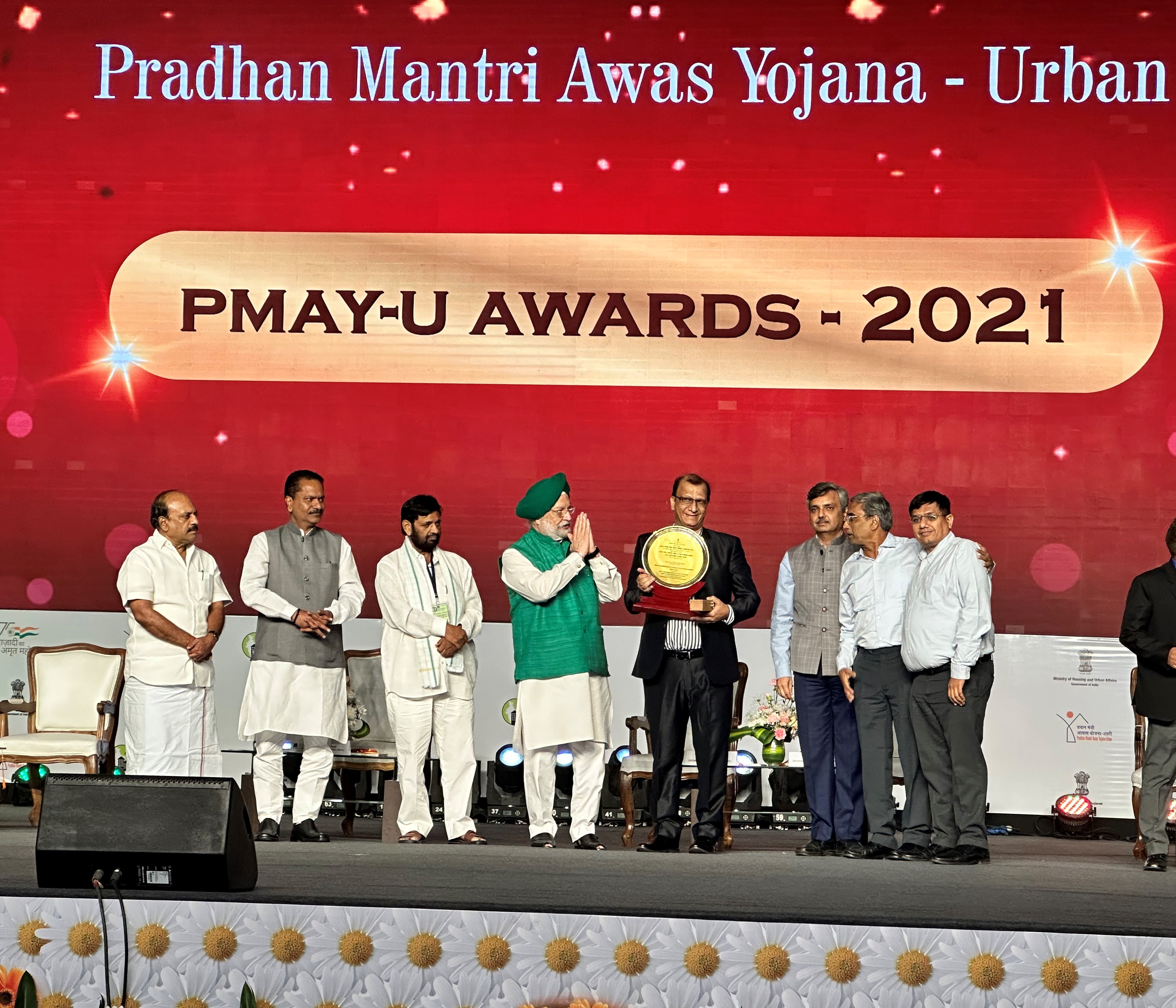
- HDFC launched ‘Green & Sustainable Deposits’ with an aim to safeguard the environment from climate change. (Aug 2021)
- HDFC approved home loans of over ₹ 52,000 Cr and disburses subsidy of ₹ 5,200 Cr to over 2,31,000 homebuyers under PMAY (Apr 2021)
- HDFC awarded as 'Company of The Year’ at The Economic Times Awards For Corporate Excellence for the year 2020. (March 2021)
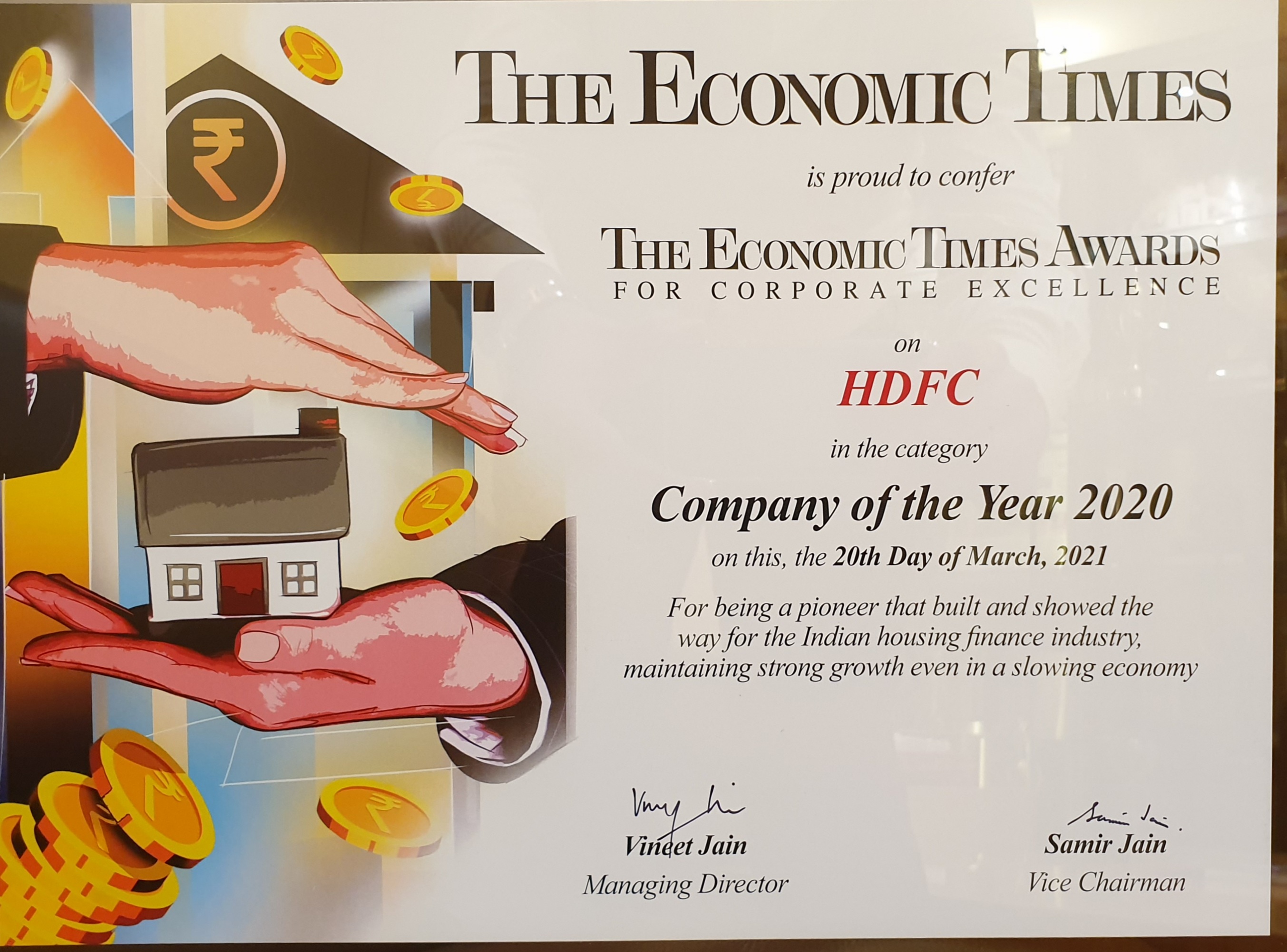
- HDFC Ltd Signed MOU with CII’s Indian Green Building Council (IGBC) to Promote Green Building Initiatives (Dec 2020)
- HDFC Disbursed subsidy to over 2,00,000 First-time Homebuyers under PMAY – Credit Linked Subsidy Scheme. Becomes the only financial institution in the country to achieve this feat. (Sept 2020)
- HDFC successfully completed its QIP of equity shares and non-convertible debentures simultaneously with warrants. HDFC has raised ₹ 10,000 crore through the issue and allotment of equity shares. (Aug 2020)
- HDFC Group committed ₹ 150 crore to the PM Cares Fund to support the Government of India for its relief and rehabilitation measures towards the ongoing Covid19 pandemic. (April 2020)
- HDFC ranked 4th in ‘Consumer Financial Services’ category in the list of ‘World’s Best Regarded Companies 2019’ by Forbes. [Source – PTI]
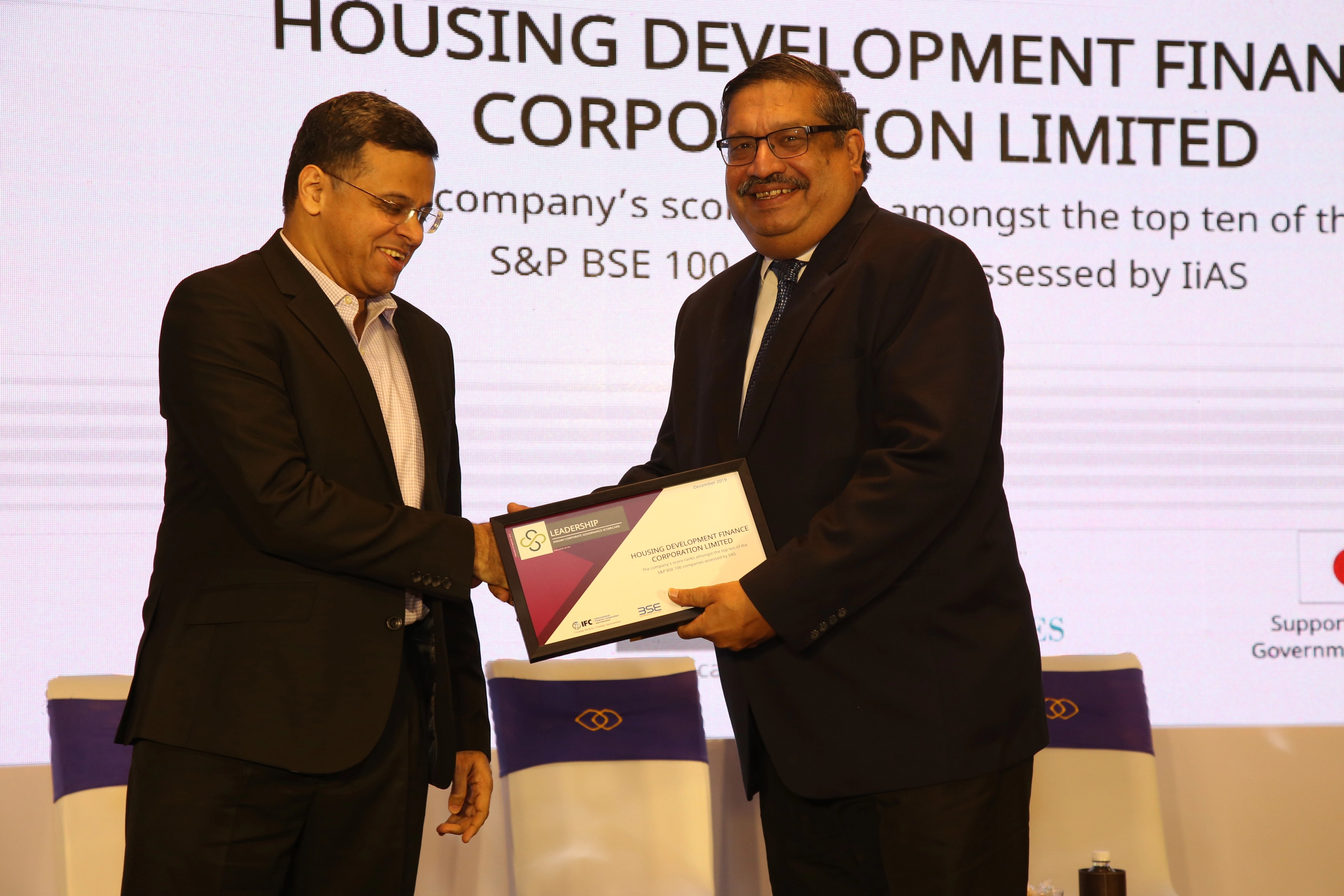
- HDFC Ltd felicitated as the Leader in Corporate Governance at the 4th Annual Announcement of ‘IFC-IiAS-BSE Governance Scores 2019'.
- HDFC Ltd awarded as Best ‘Private Sector Financial Institution’ for PMAY-CLSS at PMAY Empowering India Awards 2019.
- HDFC Ltd assists more than 1,40,000 first time homebuyers under PMAY.
- HDFC Ltd’s Website Localized in Six Indian Languages becoming only corporate in financial sector to offer content on its website in 6 Indian languages (viz., Hindi, Marathi, Tamil, Telugu, Malayalam & Kannada).
- HDFC Ltd ties up with India Mortgage Guarantee Corporation (IMGC) to provide mortgage guarantee backed homes.
- HDFC Ltd announces acquisition of entire 50.8% shareholding of Apollo Hospitals Group in Apollo Munich health insurance.
- HDFC Ltd’s Market Capitalization Crosses ₹ 4 Lakh Crore for the first time (July 18, 2019).
- HDFC Group’s Market Capitalization Crosses ₹ 13 Lakh Crore for the first time with four listed companies viz., HDFC Ltd, HDFC Bank, HDFC Life & HDFC AMC. At closing of trade on 17th December 2019, M Cap stood at ₹ 13,02,561 Crore.
- HDFC Ltd recognised as One of the Best Brands at The Economic Times Best Brands and Awards 2019.
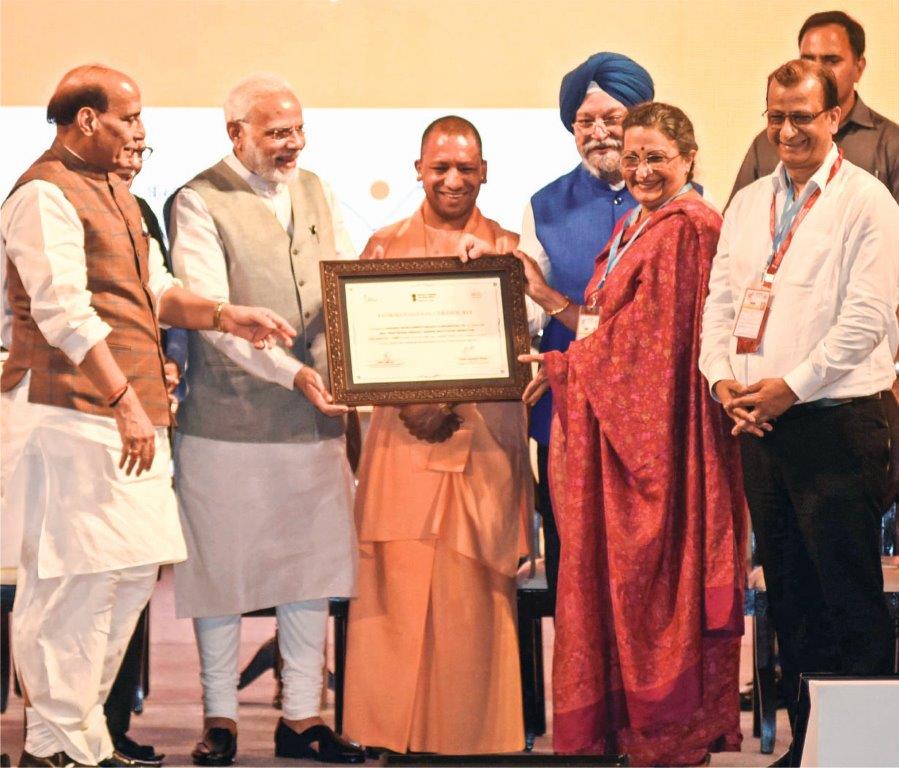
- HDFC Ltd adjudged as 'Best Performing Primary Lending Institution' under CLSS for EWS/LIG Category by the Honorable Prime Minister Shri. Narendra Modi and second best under MIG Category at "Transforming Urban Landscape, 3rd Anniversary of Smart Cities Mission, Amrut and PMAY(U) 2018".
- In November 2018, HDFC disbursed over Rs. 1,100 crore subsidy to over 51,000 first time home buyers under PMAY – Credit Linked Subsidy Scheme.
- HDFC Ltd awarded with 'Golden Peacock Award for Excellence in Corporate Governance - 2018' at the Institute of Directors (IOD) India's 18th Annual London Global Convention on Corporate Governance & Sustainability and Global Business Meet.
- HDFC Ltd awarded as the "Best Home Loan Provider" at the 12th CNBC-AWAAZ Real Estate Awards. HDFC has won the Best Home Loan Provider award thrice.
- HDFC Ltd ranked 5th biggest consumer financial services company globally and the only Indian company to be part of the top 10 Consumer Financial Services Companies in the World for 4 consecutive years - Forbes Global 2000 List (2018).
- HDFC Ltd was awarded in 'Financial Institutions/ Non-Banking Financial Companies/ Financial Services' sector at the Dun & Bradstreet Corporate Awards 2018. HDFC has won this award in 11 out of the last 13 years since the inception of this award.
- HDFC Ltd was awarded as 'India's Leading Housing Finance Company' category at the Dun & Bradstreet India's Leading BFSI Companies & Awards 2018. This was their 2nd year of award for this category and HDFC has received it on both the occasions.
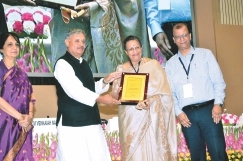
- HDFC ranked as 2nd Best Performing Primary Lending Institution under CLSS for Economically Weaker Section /Lower Income Group category by NHB
- HDFC Ltd awarded Triple A rating for Best Masala Bond India & for Best QIP India for Rs. 50 billion Non-Convertible Debentures and Rs. 54 billion Warrants at The Asset Asian Awards 2016
- HDFC Ltd awarded winner in 'Financial Institutions/ Non-Banking Financial Companies/ Financial Services' sector at the Dun & Bradstreet Corporate Awards 2017
- HDFC Ltd ranked 7th and only Indian company in the list of world's top 10 consumer finance firms by Forbes in 2017 for the third consecutive year.
- HDFC Ltd awarded as India's Leading Housing Finance Company at the Dun & Bradstreet BFSI Awards 2017
- HDFC Ltd ranks 5th amongst Business Today's 500 India's Most Valuable Companies
- HDFC Ltd ranked 4th in the list of 'India's Most Attractive Brand 2017' by TRA Research
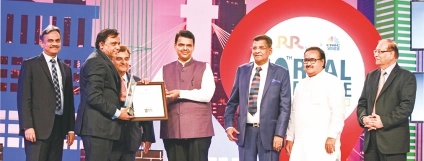
- HDFC Ltd awarded with 'CNBC AWAAZ – Best Home Loan Provider of the Decade' at the CNBC Awaaz Real Estate Awards 2015
- HDFC Ltd awarded winner in 'Financial Institutions/ Non-Banking Financial Companies/ Financial Services' sector at the Dun & Bradstreet Corporate Awards 2016
- HDFC Ltd ranked 7th and the only Indian company in the list of world's top 10 consumer finance firms by Forbes in 2016 for the second consecutive year
- HDFC Ltd awarded with 'Leading Housing Finance Company of the Year' award by ASSOCHAM
- HDFC Ltd ranked amongst the world's largest 500 companies in 'Top Green Companies in the World 2016' by Newsweek
- HDFC Ltd ranked 25th in the list of 'India's Most Attractive Employers' by Universum Global
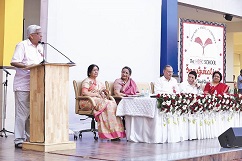
- HDFC launches the 'Online Property Bazaar' a first-of-its kind in the Indian real estate space, in New Delhi (showcasing 185 properties from across Delhi-NCR).
- HDFC featured in the list of top ten wealth creators (2009-2014) in a study undertaken by the Motilal Oswal 19th Annual Wealth Creation study 2014.
- HDFC features in the world's top 10 list of consumer finance firms by Forbes magazine.
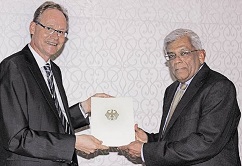
- HDFC selected as the 'Top Indian Company' under the FI/NBFC/Financial Services Sector at the 'Dun & Bradstreet - Manappuram Finance Limited Corporate Awards 2014'
- The HDFC Board recognized as one of the 'Five Best Boards' by the Economic Times and the Hay Group.
- HDFC Home Loans expands its presence on the social media - now on Facebook and Twitter.
- HDFC selected as one of the 'Five Best Boards' for the 2nd consecutive year in a study conducted by The Economic Times & Hay Group.
- HDFC wins awards for 'Best Loan Finance Bank & Best overall bank for Real Estate in India' at the Euromoney Real Estate Awards 2014.
- HDFC launches its new loan product 'HDFC Reach' to cater to the unorganised customer segment in 9 cities.
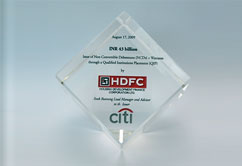
- Mr. Deepak S. Parekh appointed as Non-Executive Chairman.
- Mr. Keki M. Mistry appointed as the Vice Chairman & Chief Executive Officer.
- HDFC makes the first ever issue of Warrants simultaneously with Non-Convertible Debentures in Asia (ex-Japan), raising Rs. 4,301 crore.
- Goldman Sachs places HDFC among the world's seven best companies in financial services to sustain a competitive advantage in the long term.
- HDFC acquires an equity stake in Credila Financial Services, India's first dedicated education loan company.
- HDFC's cumulative Home Loan disbursements cross Rs. 2 lac crore.

- HDFC organizes its first 'India Homes Fair' in London.
- HDFC opens its third international office at Singapore.
- HDFC and the Frankfurt School of Finance & Management agree to jointly organize an international training program, 'Housing Finance Summer Academy' in Germany on an annual basis.
- HDFC along with other investors make an equity investment in Housing Development Finance Corporation Plc, Maldives (HDFC Maldives), thereby privatizing the Government-owned Housing Finance Company. HDFC also provides technical assistance.
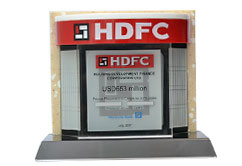
- HDFC enters into a joint venture with ERGO International AG (Germany), thereby renaming its General Insurance Company to 'HDFC ERGO General Insurance Company Limited.'
- HDFC raises ₹ 3,114 crore through a preferential allotment of equity shares to the Carlyle Group and Citigroup.
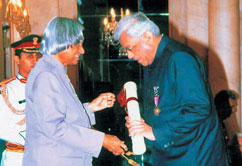
- HDFC's cumulative Home Loan approvals cross ₹ 1 lac crore.
- The Government of India confers the Padma Bhushan to Mr. Deepak Parekh.
- HDFC opens its second international office at London.
- HDFC receives the best 'Investment Management in India' Award at the EUROMONEY 2006 Real Estate Awards.

- HDFC issues Zero Coupon Foreign Currency Convertible Bonds (FCCB) aggregating US$ 500 million, the largest convertible bond offering in Asia (ex-Japan) in 2005.
- HDFC wins the Gold Midas Award by the New York Festivals for its environment conservation ad titled 'Tiger Claws'.
- HDFC launches HDFC Property Fund, a venture capital fund.

- HDFC enters into an arrangement with HDFC Bank to source Home Loans.
- CRISIL assigns the highest corporate governance rating, 'CRISIL GVC Level 1' to HDFC.
- HDFC along with other investors promotes Egypt's first Housing Finance Company, Egyptian Housing Finance Company. HDFC also provides technical assistance.
- HDFC raises a loan of US$ 200 million from the International Finance Corporation.
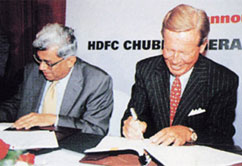
- HDFC enters into a joint venture with Chubb Corporation, USA to promote HDFC-Chubb General Insurance Company Limited.
- To augment its marketing and distribution efforts, HDFC commences sourcing of Home Loans through Direct Selling Agents (DSAs).
- HDFC raises US$ 100 million through the issue of Floating Rate Notes. The issue is awarded 'India Capital Market Deal of the Year' by International Finance Review, Asia.
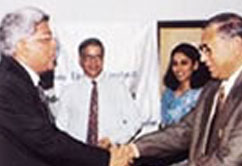
- HDFC raises its first ever syndicated foreign currency loan of JPY 12 billion.
- HDFC along with other investors promotes NDB Housing Bank Limited in Sri Lanka and also provides technical assistance.
- HDFC promotes India's first credit bureau, CIBIL along with the State Bank of India, Dun & Bradstreet Services India Private Limited and TransUnion International Inc.
- HDFC features in AsiaMoney's Top 20 Champions of Asian Business, a poll of the best companies in the Asia Pacific region.
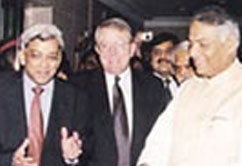
- HDFC launches its first Property Fair in New Delhi.
- HDFC promotes www.propertymartindia.com (now www.hdfcrealty.com), a real estate services website.
- HDFC issues the first Mortgage Backed Securities in India.
- HDFC acquires 'Hometrust Housing Finance Company', a 100% Housing Finance subsidiary of Gujarat Ambuja Cement Limited. Hometrust merged with HDFC.
- HDFC also acquires the entire stake of Gujarat Ambuja Cement in GRUH Finance, thereby making GRUH a subsidiary of HDFC.
- HDFC enters into a joint venture with Tata Consultancy Services to promote Intelenet Global Services Limited for IT-enabled services.
- HDFC enters into a joint venture with Standard Life Investments, UK to promote HDFC Asset Management Company Limited.
- HDFC Standard Life Insurance Company Limited becomes the first private insurer in India to obtain registration from the Insurance Regulatory and Development Authority (IRDA) to issue life insurance policies.
- Road No. 3 at Backbay Reclamation, Churchgate, Mumbai (where HDFC's Head Office is situated) gets renamed as 'Padma Bhushan H. T. Parekh Marg'.
- HDFC becomes the first Indian Housing Finance Company to provide online approval for Home Loans via its website www.hdfc.com.
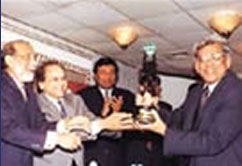
- HDFC invests in a new Housing Finance Company in Sri Lanka.
- HDFC launches its website www.hdfcindia.com (now www.hdfc.com).
- HDFC receives the 'IMC Ramkrishna Bajaj National Quality Award for Business Excellence' — the first company to receive this award in the Services category.
- HDFC is the first Housing Finance Company to introduce the 'Adjustable Rate Home Loans' in India.

- HDFC voted as the 'Best Managed Company in India' in a survey conducted by Asiamoney of 250 fund managers worldwide.
- HDFC in partnership with a South based NGO launches the Indian Association for Savings & Credit (IASC) — a pioneering micro-finance institution operating in the states of Tamil Nadu and Kerala.
- HDFC introduces two new products - Home Equity Loan and Corporate Employees Group Finance Arrangement (CEFA).
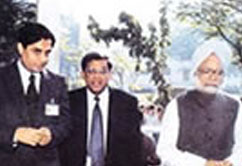
- HDFC enters into a joint venture with IL&FS and Colliers Jardine Asia Pacific Limited to promote 'Colliers Jardine India Property Services Limited'.
- HDFC in strategic alliance with NatWest Markets (UK) promotes 'HDFC Bank' which was inaugurated by the then Union Finance Minister Dr. Manmohan Singh.
- HDFC receives an 'AAA' rating from both CRISIL and ICRA for its Deposits products connoting highest safety to depositors.
- HDFC's first private placement of equity shares with Foreign Institutional Investors of ₹ 428 crore.
- HDFC signs an MoU agreement with Standard Life Assurance Company, UK for life insurance.

- HDFC's first private placement of equity shares of ₹ 261 crore with domestic institutions.
- HDFC introduces 'Non-Residential Premises Loans' for individuals.
- HDFC enters into a joint venture with General Electric Capital Corporation (GE Capital), USA to promote 'Countrywide Consumer Financial Services Limited' for consumer finance.
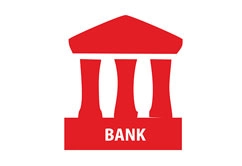
- Mr. Deepak Parekh appointed as Chairman and Mr. H.T. Parekh appointed as Chairman Emeritus.
- The CHF conducts its first training program overseas on 'Credit Appraisal and Loan Recovery Techniques' at Manila, Philippines.
- HDFC responds promptly to the earthquake that struck the people of Latur, Maharashtra by undertaking a comprehensive rehabilitation project for about 339 families. HDFC adopts the Holi village after the Latur earthquake.
- HDFC is the first Indian company to receive an in-principal approval for setting up a banking company in the private sector.

- HDFC, jointly with the United Nations Centre for Human Settlements (UNCHS) promotes the 'Coalition of Housing Finance Institutions' in Asia. Other partner members: the Home Development Mutual Fund, Philippines, the Government Housing Bank, Thailand and the Korea Research Institute for Human Settlements.
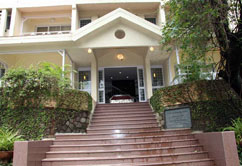
- HDFC introduces two new products - House Renovation Loan & Home Extension Loan.
- HDFC computerizes its Loan Processing System (LPS).
- HDFC established its training centre, the Centre for Housing Finance (CHF) in Lonavla.
- The CHF conducts its first international training program on Housing Finance Management and managerial effectiveness.
- HDFC approves loans for over 1 lac units in a single year.
- KfW, a German Development Bank approves a Line of Credit of DM 25 million to HDFC directed towards the economically weaker section households.

- HDFC sets up a separate reserve (Shelter Assistance Reserve) with an initial contribution of Rs. 50 lac from its annual profits, to support and promote shelter development, especially for the poor.
- The World Bank approves a loan of US $ 250 million to HDFC.
- HDFC's cumulative loan approvals cross ₹ 1,000 crore.
- HDFC introduces two new products - Telescopic Loan Plan and Short Term Bridging Loan.
- HDFC in partnership with India's leading financial institutions and commercial banks helps set up:
- India's first rural housing finance company, Gujarat Rural Housing Finance Corporation Limited (GRUH).
- India's first leasing finance company, Infrastructure Leasing and Financial Services Limited (IL&FS).
- India's first credit rating company – Credit Rating Information Services of India Limited (CRISIL).
- Housing Promotion and Finance Corporation Limited (now SBI Home Finance)
- Can Fin Homes Limited.

- HDFC's first Equity Rights Issue of ₹ 5 crore.
- HDFC commences offering 'Advanced Processing Facility', a new service enabling property developers undertaking a residential project to approach HDFC for in-principal approvals to finance individuals buying a dwelling unit in their project.

- HDFC signs an agreement with USAID for the fourth tranche of US$ 25 million and the fifth & last tranche of US$ 15 million in the US Capital Market, thereby completing a total borrowing of US$ 90 million which commenced in 1981.
- HDFC's loan approvals cover 1,000 towns.
- HDFC introduces a new lending instrument, the Step-Up Repayment Facility (SURF), aimed at assisting low income groups as well as young professionals to obtain larger individual loans.

- HDFC introduces the 'Home Savings Plan' based on the 'Bausparkasse' model, West Germany.
- HDFC wins the Indian Merchants Chambers Award for the year 1984 for outstanding contribution made towards encouraging savings. The citation made specific mention of HDFC's role in channelizing household savings for the purpose of promoting home ownership.
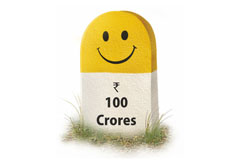
- HDFC's annual loan approvals cross ₹ 100 crore.
- HDFC enters into a new agreement with USAID to borrow US$ 20 million in the US Capital Market.
- HDFC sets up a 'Property Services Group' to assist individuals and companies to locate a suitable residential accommodation in select towns and cities of India.

- HDFC introduces its first retail Deposit product.
- HDFC promotes a wholly-owned subsidiary, HDFC Developers Limited to undertake specific housing projects from time to time.
- HDFC negotiates a US$ 30 million guarantee from the United States Agency for International Development (USAID) under its 'Housing Guaranty Program' and signs an implementation agreement with USAID for borrowings of US$ 20 million in the US Capital Market.
- HDFC installs the first computer at its Head Office in Mumbai.
- The HDFC Board announces the maiden dividend of 5%, a significant achievement in 3 short years.
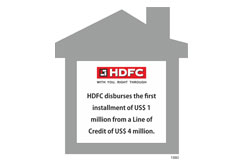
- International Finance Corporation [IFC(W)] under its Investment Agreement with HDFC disburses the first installment of US$ 1 million from a Line of Credit of US$ 4 million.
- The Reserve Bank of India grants general permission to HDFC to accept Deposits from Non Resident Indians (NRIs) as well as to grant Home Loans to the NRIs without obtaining prior approvals.
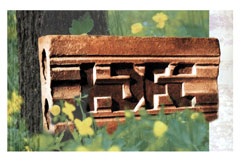
- HDFC incorporated on October 17.
- HDFC promoted as a 'development finance institution' by the Industrial Credit and Investment Corporation of India Limited, the International Finance Corporation, Washington [IFC(W)] and His Royal Highness The Aga Khan.
- Mr. H. T. Parekh appointed as Chairman.


